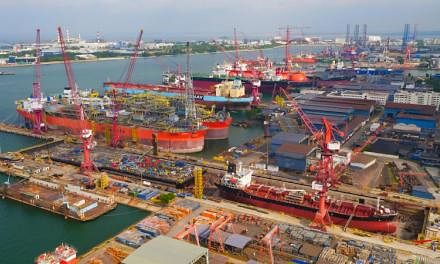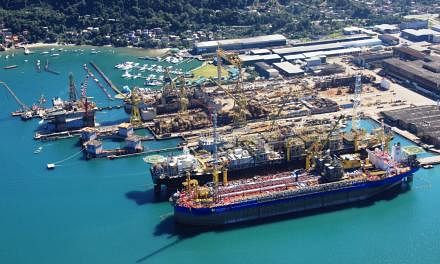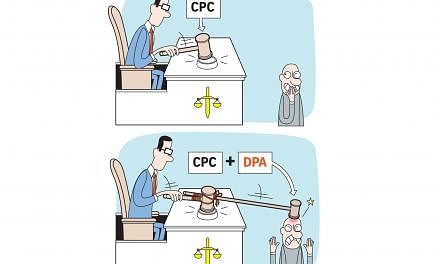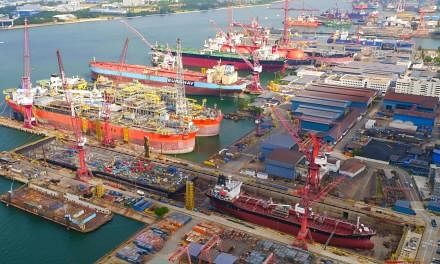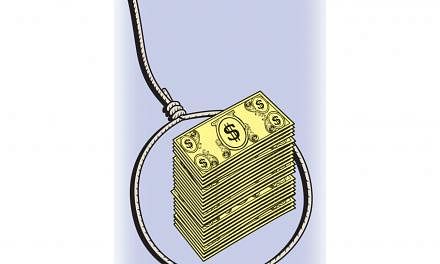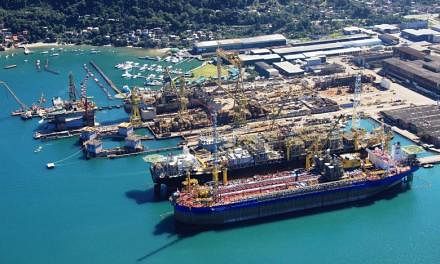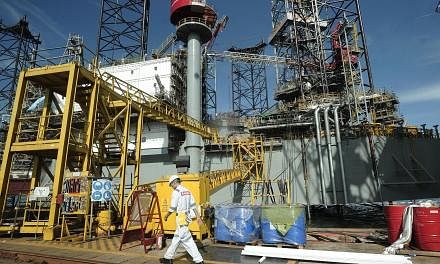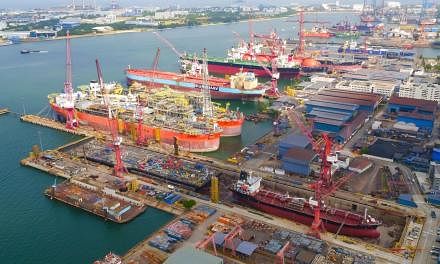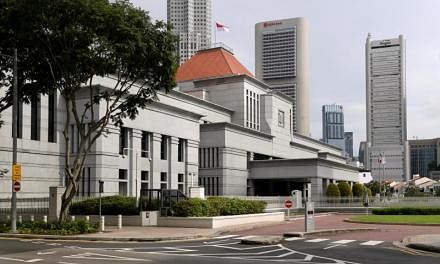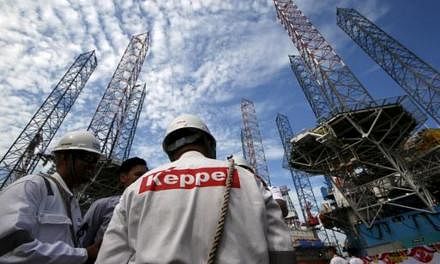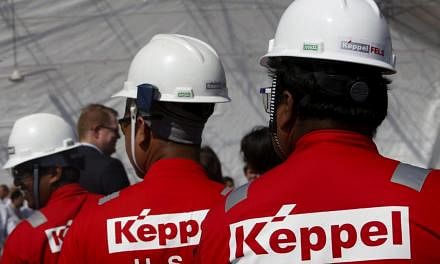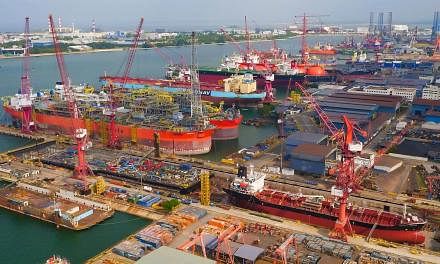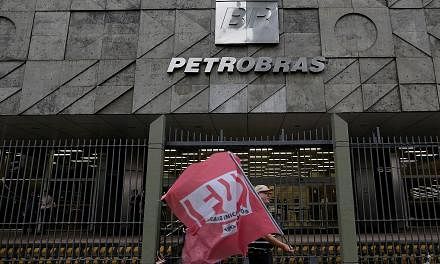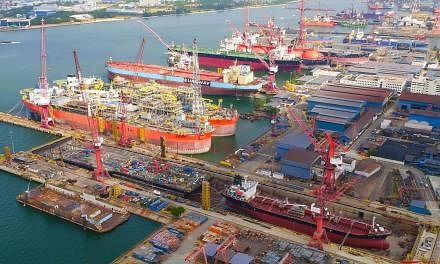It all began at a petrol station in Brazil's capital.
In March 2014, the federal police in Brasilia were investigating what they thought was yet another routine case of money laundering, for which petrol stations were commonly used. They detained one Alberto Youseff, a black-market money dealer, who had a previous record. But he turned out to be no ordinary "doleiro" as money launderers are called in Brazil.
On his computer was a spreadsheet with hundreds of names of senior executives as well as several companies, with details of their money transfers. One of the names was that of Paulo Roberto Costa, a director at Brazil's largest company, the oil giant Petrobras, responsible for procurement.
Arrested and pressured by investigators, Costa revealed that for more than a decade, Petrobras managers, in cahoots with ruling politicians and many companies operating in Brazil, had been skimming off hundreds of millions of dollars from Petrobras contracts.
The police had stumbled upon the largest financial scandal in Brazilian history that was to ensnare dozens of companies local and foreign, including Keppel.
Its victims also included scores of Brazil's top executives and at least 50 politicians. The scandal also helped oust Brazil's president from 2011 to August 2016, Ms Dilma Rousseff. It came to be called Operacio Lava Jato, translated as "Operation Car Wash" because of its money laundering and petrol-station origins.
The investigations were aided by the passage of Brazil's Organised Crime Law in 2013, which was a Brazilian version of the plea bargain and provides a detailed road map for collaboration by witnesses. As long as a witness tells the truth, which can be verified and produces results, prosecutors can ask judges to reduce his or her sentence, or even grant a judicial pardon.
The plea bargain system brought forth a cascade of confessions and incriminating evidence. After spending even a few days in the lock-up, well-heeled executives were, more often than not, eager to spill the beans in return for leniency.
Many testimonies revealed the mechanics of the corruption scheme. Basically, it was reported to have worked as follows: Companies that were suppliers to Petrobras formed a cartel in collusion with senior Petrobras officials. The cartel created a pretence of competition to "bid" for contracts, but the bids were rigged. The cartel would decide in advance who would win the contracts, at what price and the amounts by which Petrobras would be overcharged. Petrobras officials would help in the process by adding unnecessary jobs to inflate contract values and leak confidential information to the cartel to help their members win, while ensuring that non-cartel bidders were disadvantaged.

So the cartel members succeeded in getting contracts for which Petrobras overpaid by design. The Petrobras officials involved were bribed generously for their collusion. A percentage of the money also went to politicians and to middlemen, who managed the process on behalf of the companies and who paid the bribes. The doleiros took their cut as well.
The media reported that some of the money would be hand-delivered by "mules" - usually elderly men who travelled with wads of shrink-wrapped currency notes strapped to their bodies. In other cases, suitcases of cash were left at pre-arranged locations. Some of the bribes were paid "pre-laundered" in the form of expensive watches, works of art and luxury cars.
KEPPEL'S INVOLVEMENT
According to the Brazilian newspaper O Globo, a senior Petrobras manager, Mr Pedro Barusco, named Zwi Skornicki as the person responsible for paying bribes on behalf of Keppel.
Skornicki, who formerly worked for Petrobras as an engineer, had established a consultancy called Eagle do Brasil in the early 1990s.
He was first engaged by Keppel Corp subsidiary Keppel Fels (which was merged into Keppel Offshore and Marine in 2002) to work as its agent, and he operated out of Keppel's office in Rio de Janeiro.
His job was essentially to secure contracts - which he did with great success and for which he was handsomely rewarded. According to the Brazilian magazine Veja, his work for Keppel Fels over a decade enabled him to amass an impressive collection of luxuries, including mansions in Rio and Miami, a fleet of luxury cars and yachts.
After he was arrested in February 2016 for paying millions in bribes to Petrobras executives as well as officials of the ruling Workers' Party, Skornicki told a judge in July 2016 that five Keppel executives had authorised him to pay the bribes on Keppel's behalf. In a statement to the Singapore Exchange on Aug 3, Keppel indicated that it "strongly denies" Skornicki's allegations.
Then two months later, Keppel admitted that "certain transactions associated with Skornicki may be suspicious", adding that it had "notified the authorities in the relevant jurisdictions of its intention to cooperate and work towards the resolution of the underlying issues arising from or in connection with the transactions".
Allegations that Keppel Fels (as well as Jurong Shipyard) had paid bribes for contracts had also been made in 2015 by the former Petrobras official, Mr Barusco, which Keppel also denied, claiming that "the company's policies prohibit bribery and all other types of corruption".
Nevertheless, investigations of Keppel's activities in Brazil continued. They culminated in a settlement late last month with the US Department of Justice, as well as the authorities in Brazil and Singapore, under which Keppel agreed to pay a total of US$422.2 million (S$563.5 million) in criminal fines as part of a deferred prosecution agreement.
On Dec 22, citing admissions and court documents, the US Department of Justice (DOJ) revealed that "beginning by at least 2001 and continuing until at least 2014, Keppel (O&M) conspired to violate the FCPA (Foreign Corrupt Practices Act) by paying approximately US$55 million in bribes to officials at the Brazilian state-owned oil company Petrobras and to the then governing political party in Brazil, in order to win 13 contracts with Petrobras and another Brazilian entity."
The DOJ also revealed that Keppel (O&M) executives "authorised payments of bribes", and released copies of e-mail sent by the executives to each other and between them and Keppel's consultant, which corroborated this.
It also noted that a former senior member of Keppel (O&M)'s legal department had pleaded guilty to violating the FCPA during a plea hearing in New York on Aug 29.
It was later revealed that this was Jeffrey Chow who was quoted as saying, in his plea hearing: "I am deeply sorry for my conduct." He admitted he had drafted contracts with a Keppel agent in Brazil who he realised was being overpaid by millions of dollars so he could bribe Brazilian officials.
"I should have refused to draft the contract that we used for paying bribes and I should have resigned from Keppel," he added.
In an e-mailed response to questions from the news agency, Reuters, Keppel (O&M) said "We are deeply disappointed by the behaviour uncovered, which was wrong."
In its own statement on Dec 23, Keppel indicated it had taken disciplinary action against the employees involved in the misconduct, "including separation and financial penalties" - although there is no evidence that any Keppel executives benefited directly and personally from the bribery.
Since the December settlement, attention has been focused on whether, and to what extent, the board of Keppel Corp knew about the illegal payments made in Brazil.
A Keppel spokesman told The Business Times last week that "the current board" was not aware of these payments.
The spokesman explained that the illegal payments were "deliberately concealed by those complicit in the bribery and structured as agency fees. The agency fees were not approved by the boards of Keppel Corp or Keppel O&M as they were built into the contract values of the respective projects".
NOT PROACTIVE
While this explanation is theoretically plausible - falling within the realm of what lawyers call "plausible deniability" - some would argue that it strains credulity.
What it suggests is that the agent's (Skornicki's) brief from Keppel was essentially to secure the Petrobras contracts without revealing his modus operandi. Assuming this is true, it implies, first, that Keppel O&M's lawyer, Mr Chow, drafted the contracts used to make the bribe payments (which he knew were overpayments) out of the purview of Keppel's board - which appears to be the case, given Keppel's response to Mr Chow's guilty plea.
It also implies that the former employees who were implicated in the scandal and from whom Keppel has "separated" also acted without the board knowing what they were doing. And that all of this had gone on for 13 years, from 2001 to 2014. This, too, is theoretically possible. But if Keppel's boards (whether current or former) were so oblivious for so long, this would raise issues of lapses of governance.
Moreover, the Keppel spokesman's explanation suggests that the Keppel board paid little attention to the Car Wash scandal.
Since 2014 to this day, details of the scandal have been splashed across Brazil's media almost every day - the arrests of executives with whom Keppel had done business, the revelations of the rigged system by which contracts were obtained and the naming of companies involved, which included Keppel.
If they had paid attention, at some point before Skornicki's allegations of Keppel executives having sanctioned the bribery, Keppel executives would surely have asked: "Do Keppel's contracts with Petrobras involve any bribery?"
Keppel could then have launched internal investigations into Skornicki's modus operandi and how its contracts were obtained. The board and management could have taken remedial action earlier than they did.
In the end, Keppel cooperated fully with the investigations for which it was duly rewarded with a reduced (although still hefty) fine. But as Brazil's Attorney of the Republic Athayde Ribeiro Costa said ruefully: "Many multinationals have a tradition of cooperating with the investigations, but it is a shame that several of them have not acted proactively to investigate the facts and contribute to Brazilian justice."
More than 20 foreign companies from multiple countries have been mentioned in the plea bargain testimonies associated with Operation Car Wash. Besides Keppel, these companies include Glencore, Maersk, Mitsubishi, Mitsui, Rolls Royce, SBM, Samsung, Sargeant Marine, Sembcorp Marine, Skanska, Toshiba, Toyo, Trafigura and Transocean - although this does not mean they are, or will be found, culpable. Hundreds of Brazilian companies were also involved. Some companies have already reached settlements, including SBM, Rolls Royce and the Brazilian construction giant Odebrecht which, together with its petrochemical affiliate Braskem, agreed to pay a record fine of US$3.5 billion in December 2016.
The companies, including Keppel, appeared to be caught off-guard by the Car Wash scandal. So too was almost everybody else associated with it: Petrobras executives, politicians, the middlemen like Skornicki and the doleiros. Reports suggest that even the police and the judiciary were surprised by how massive the scandal became, and how many "who's who" victims it claimed.
Operation Car Wash was cheered on by the Brazilian public, with judges and policemen hailed as heroes. They saw it as a breath of fresh air in dismal times. Bribery in Brazil, assumed to be a normal part of life, had never been confronted in this manner and laid bare on such a scale. Nobody anticipated that the day would come when everybody involved in dealings with Petrobras would come under public scrutiny, and be held accountable.

